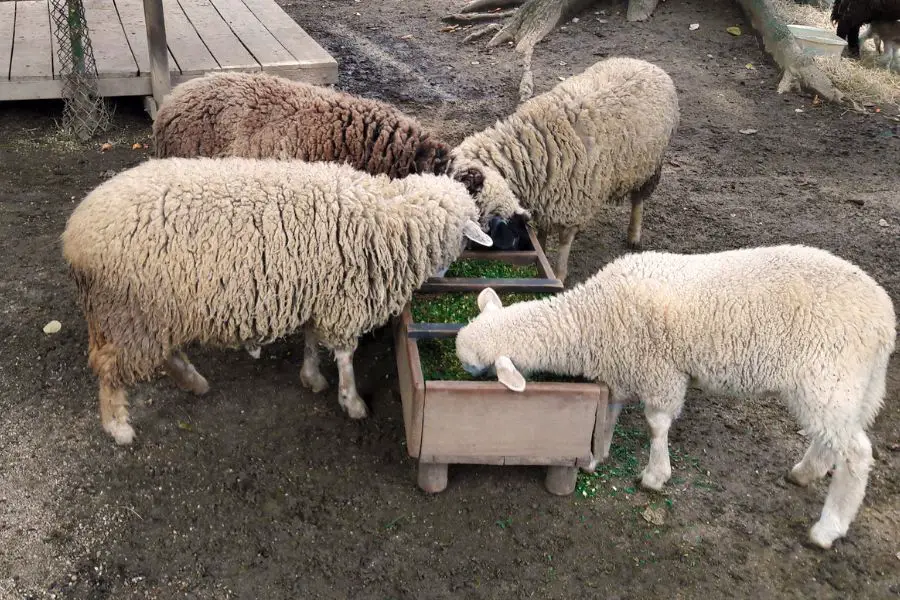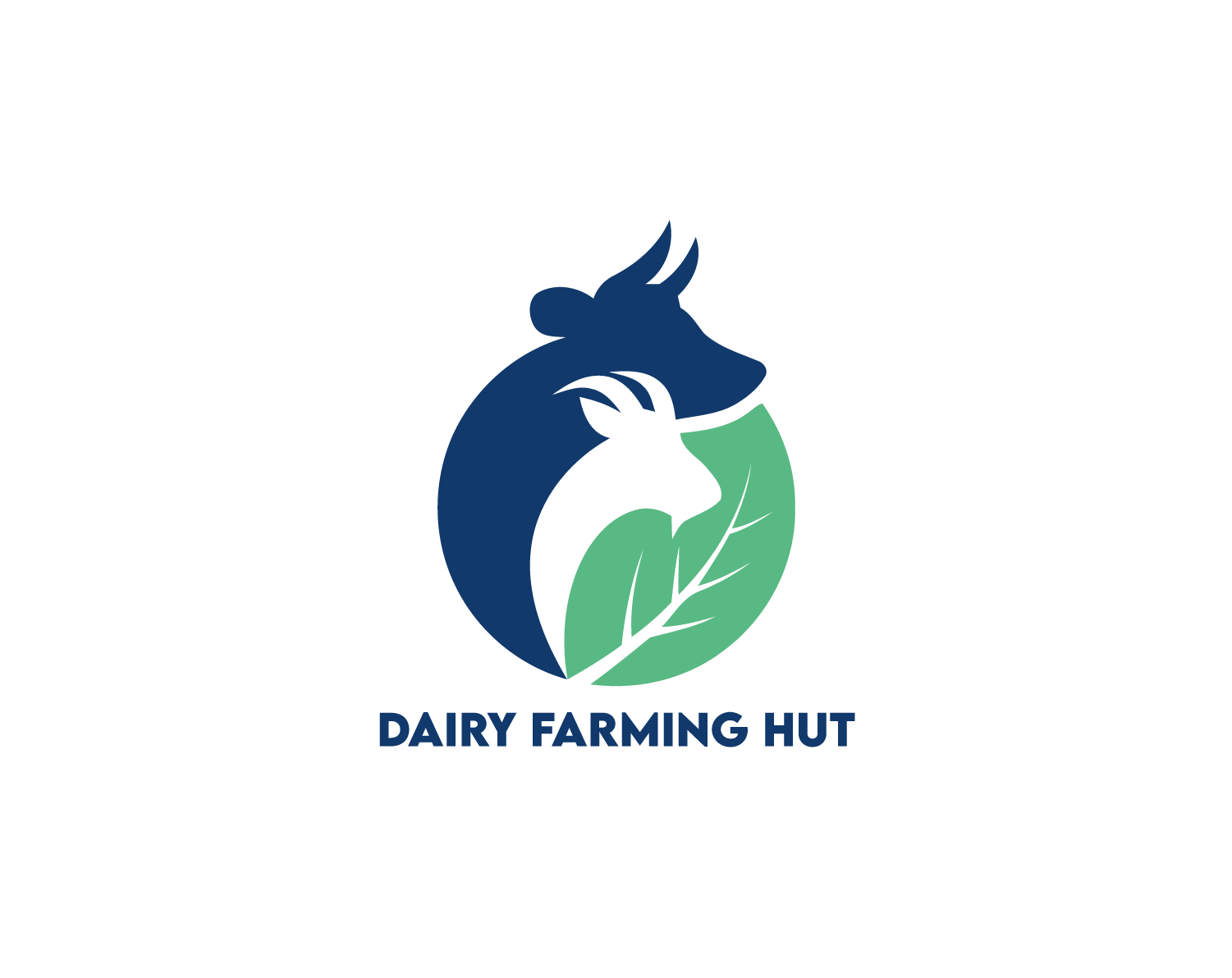Sheep are farmed for their wool, meat, and milk. Sheep dairy products are becoming more popular, thus increasing their demand. So, dairy sheep farmers need to feed their animals more so that they can produce this sought-after milk. But what are dairy sheep fed?
Dairy sheep thrive on a diet of grasses and grains as they are natural grazers. Milking ewes consume up to 3% of their body weight in dry matter, and to ensure optimal health and milk quality, additional nutrients and supplements are given. Additionally, these sheep can drink up to 2 gallons of water per day to keep them hydrated and healthy.
Read on to discover what dairy sheep eat, their nutritional requirements, and a guide to feeding them.
What Do Dairy Sheep Eat?

Dairy sheep are natural grazers and have a preference for short pasture grasses that grow close to the surface. These grasses come in a variety of species including clover, alfalfa, legumes, chicory, and shrubs, making up a diverse and nutritious diet for the sheep.
Sheep can flourish by only eating pasture grasses, grains, and freshwater if left to forage themselves. This is how sheep survived for centuries, but now that they are farmed for milk and meat, they need added nutrients.
The added nutrients became common when commercial feeders were introduced to the farming community. This is especially true for dairy sheep, as they will require the added nutrients to produce high amounts of milk.
What Are The Nutritional Requirements For Dairy Sheep?
The nutritional requirements for a dairy sheep are vitally important to maintain good health and milk production. These requirements will vary depending on the sheep's age, the lactation stage, and overall body condition. The key nutritional requirements for a sheep are:
- Energy – a constant supply of energy is vital in a sheep's milk production and growth. Energy-rich food such as carbohydrates, sugars, and starches are all part of a dairy sheep diet.
- Protein – a high-protein diet is required for milk production and muscle development in dairy sheep. This is provided in the form of milk proteins, casein, and whey.
- Minerals – calcium, phosphorus, magnesium, and potassium are all essential in milk production and the general health of the sheep.
- Vitamins – a range of essential vitamins are needed to keep the sheep healthy. Vitamin A is good for vision, reproduction, and sheep's skin. Vitamins D and E are necessary for bone health, fertility, and the animal's overall health.
- Fiber – gut health is essential for sheep as fiber aids digestion. The sheep get fiber from the grasses and hay that they eat.
How Much Do Milking Ewes Eat?
The amount of feed a milking ewe needs will depend on several factors. These factors are her age, the stage of lactation, her body condition, and the quality and availability of forage. A milking ewe should consume about 2-3% of her body weight in dry matter per day. For example, a 150-pound ewe should consume about 3-4.5 pounds of the dry matter daily.
It is important to note that the nutritional requirements of a milking ewe increase as she moves from early to peak lactation. For example, during early lactation, she may need to eat 4-5% of her body weight in dry matter per day, and during peak lactation, she may require up to 6% or more.
It is also important to monitor the ewe's body condition regularly and adjust the amount of feed as needed to ensure that she is not losing or gaining too much weight. A good body condition for a ewe is a slightly rounded rump with a smooth and rounded back with no visible bones.
A Guide To Feeding Dairy Sheep
Feeding dairy sheep requires a planned approach that will identify the individual sheep's nutritional requirements. This will ensure they stay healthy and produce quality milk. Below is a guide to feeding dairy sheep.
The Availability And Quality Of The Forage For The Sheep
Forage should make up the bulk of a dairy sheep's diet. This makes it important to assess the quality of the forage that is available on the farm. This will include grass, hay, and silage. Supplements and concentrates can be introduced if there is no forage available.
Determine The Nutritional Requirements Of The Sheep
The specific nutritional requirements of the dairy sheep will depend on the age, stage of lactation, and body condition. A veterinarian or a sheep nutritionist can assist in determining the appropriate nutrient levels for the sheep.
Choose A Balanced Concentrate Mix For The Sheep
Concentrates, such as grains, corn, barley, or oats, should make up about 10-15% of a dairy sheep's diet. They can be fed to meet the additional energy and protein requirements for milk production. Using a quality balanced concentrate mix will boost the nutritional needs of the sheep.
The Sheep Need Access To Clean Water
Clean and fresh water should be readily available to dairy sheep at all times. Dairy sheep can consume between 1 to 2 gallons of water per day.
Add Mineral Supplements To The Feed
Dairy sheep need a suitable amount of minerals and vitamins every day. This will include calcium, phosphorus, and vitamins A and D. The Supplements assist in maintaining the sheep's health and productivity. A commercial mineral supplement will ensure that the sheep get their necessary minerals and vitamins.
Dairy Sheep Need Salt
Salt is an important mineral that helps regulate water balance and maintain the electrolyte balance in a sheep's body. Salt should be provided in a separate feeding station away from the regular feed station. This will help to ensure that the sheep ingest enough salt.
Feed The Sheep At Regular Intervals
Dairy sheep should be fed regularly to maintain their health and energy levels. Concentrates and minerals should be given twice daily while allowing them to forage.
Monitor The body Condition Of The Sheep
Dairy sheep should be monitored regularly to assess their body condition. This will ensure the dairy sheep are getting enough feed. A ewe in good body condition should have a slightly rounded rump and a smooth, rounded back with no visible bones showing.
Adjust The Sheep Feed As Needed
The nutritional requirements of dairy sheep will change over time. It is important to adjust their feed intake to ensure they obtain the correct amount of feed.
Conclusion
In conclusion, providing dairy sheep with a well-balanced diet is crucial for their health, productivity, and milk quality. A diet consisting of high-quality forages, grains, and supplements rich in protein, energy, and essential minerals and vitamins can improve milk yield and quality.
It is essential to take into account the stage of lactation, body condition score, and individual needs of the sheep to tailor their feeding program. Additionally, ensuring access to clean water, proper grazing management, and monitoring their health and production can enhance their overall well-being.
By following these guidelines, dairy sheep farmers can optimize their production and contribute to sustainable and profitable farming practices.
